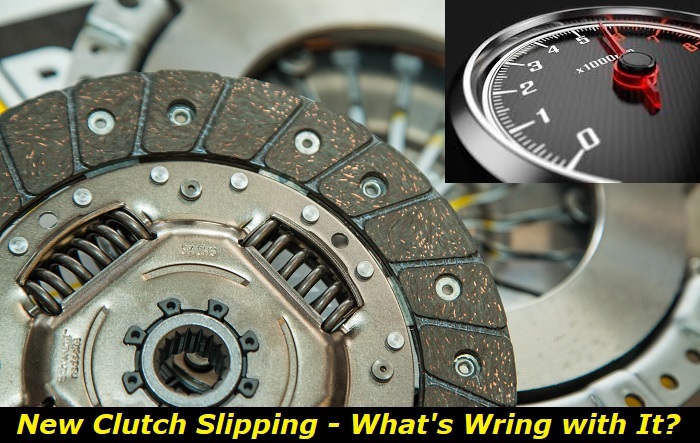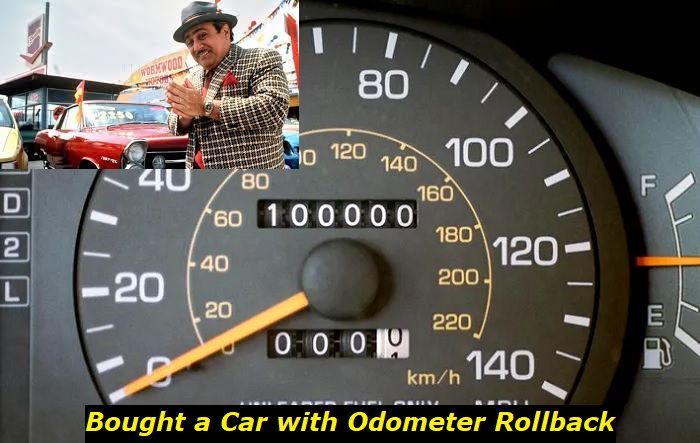One of the worst experiences in the life of a car owner is when the fixed problem keeps getting on their nerves. This usually happens like this: a certain problem starts showing up pretty often and disturbing you from normal driving. You finally decide to invest money in repair and solve this problem. But after some short time, it reappears and keeps bothering you.
Today, we'll tell you why the new clutch may slip and cause any other issues. Should you immediately go to the dealer or repair shop? And how to fix the issue. Of course, there are a lot of individual reasons why this may happen, so we can't guarantee that we'll cover all possible reasons for this issue. But we'll try to make it as wide as possible.

Here's what exactly we'll be talking about:
- Why can the new clutch slip?
- What are the signs that you have to replace your clutch?
- What to do if your new clutch starts slipping?
- How to understand it's about the mistake of the car mechanic?
- How much is it to repair or replace the clutch in a vehicle?
Let's get started!
How can you understand your new clutch slips?
So, you just had the new clutch kit installed and are driving out of the dealer's repair shop with a smile on your face. But once you try to accelerate aggressively, the RPM gauge starts going up and down and the engine starts revving before acceleration. These are clear signs that your clutch is slipping.
But to make sure here is the full list of symptoms:
- once you apply some pressure on the gas pedal, you hear some unusual noises from under the hood (squeaking, gurgling, grinding, etc.);
- you may feel some burning smell in the car once the slipping occurs because of friction in the clutch system;
- your automatic transmission may hesitate when shifting gears while manual transmissions make it harder to shift;
- you can feel some vibration or tremble on the clutch pedal (for manual transmissions only);
- the engine revs up but the vehicle can't accelerate aggressively, it accelerates quite slowly.
You may say - hey, but there is no clutch in the automatic transmission, why do I experience all those symptoms in my car? The problem is that many modern automatic transmissions are DCT transmissions and they have not one but two sets of clutches. So, the same slipping problems may occur and you should be able to differentiate.
Why will the new clutch slip?
You may read in some articles or hear from some specialists that when your new clutch slips one or two times after you first drive your repaired vehicle, it's OK. But no, it's not OK. It means that some problems are still there or the new clutch is badly installed.
So, here are the possible reasons why your new clutch may slip:
- Release system wear which wasn't noticed when repairing the vehicle;
- Poorly chosen parts for your vehicle - the clutch has the wrong size or other specs;
- Poorly installed clutch - this means the mechanic is in charge of the problem;
- Flywheel problems that weren't noticed when repairing the vehicle;
- Lubricant on the friction surfaces of the clutch;
- Initially broken parts installed in the clutch system in your car.
So, you can see it's not OK when your new clutch slips. If it happens, the easiest option is the lubricant on friction surfaces. It means that the mechanic didn't care much when assembling the transmission and clutch. The lubricant will not disappear quickly, so you will have to clean it.
All other problems are much worse and will require additional repairs or one more clutch replacement.
What should you do if your new clutch is slipping?
Whatever the situation is, the new clutch should work well and not cause any difficulties. If it causes problems, you should immediately go to the mechanic or to the dealer that repaired your vehicle. Describe the situation or just take the mechanic with you in the car and show the problems.
All parts and labor should have at least some warranty, so the mechanic will have to sort out the situation.
The mechanic will have to do the following:
- drive a vehicle and see if the problem appears every time the gas pedal is pressed;
- diagnose the car and see if this gives any understanding of what is wrong with the vehicle;
- take the transmission off the vehicle and visually inspect the clutch to see if there are any problems;
- replace any parts that don't work as they should and cause these problems;
- assemble the transmission and install it into the vehicle;
- test drive the vehicle and see if the problem is completely solved.
After that, you should take your car and test drive it in different conditions. Go to the highway and try aggressive acceleration. If the clutch doesn't slip in that situation, it should be OK.
Of course, a good service center will not take money from you if they see the problem appeared because of their negligence. But in most cases, you will still be charged. They may conclude that the problem appeared because of the defective parts and you will just not be able to find a person or a company that should be in charge of the situation.
How to understand that it's all about the mistake of your mechanic?
You will not understand this even if you are watching the whole process of repair. Unfortunately, it's impossible to see if the reason for the issue was a defective part, a worn flywheel, or a mistake by the mechanic. If you are not a car mechanic yourself, you will have to believe what a mechanic will tell you. And they won't report a real problem just because they don't want to pay for repair.
You can try to go to a different service station and ask those guys to make a report about the reasons for the new clutch slipping. With this report, you then may go to court and demand full compensation from the repair shop that initially replaced the clutch in your car. But it will still require a lot of time and money from you.
So, it's hard to understand who should be in charge. That's why car owners will usually pay for repair even if the problem was because of the car mechanic's mistake.
How much is it to replace the clutch system?
This highly depends on the vehicle. In one situation, the clutch kit may cost just $200 and the labor will be another $200. But usually, it's true for older cars with manual transmissions. Newer vehicles will offer more expensive clutch systems.
If you need to replace a clutch in the DCT transmission, the costs will be much less pleasant. The clutch kit costs more than $1,200 and the labor is not cheap, too. So, if any mistake happens after replacing the DCT transmission clutch, the court seems like a good idea.
Anyway, the clutch replacement costs will also depend on many different things like some other parts that have to be replaced or repaired, the brand and the year of your vehicle, etc.
How long should the new clutch last?
The clutch system should last long. In many manual vehicles, clutches last as long as the whole car lasts. DCT clutches are less reliable and usually need replacement every 100,000 miles. But if your clutch slips after 5,000 miles, it's not OK at all. It means the clutch was installed incorrectly or some parts of the kit were defective.
Unfortunately, you will not be able to make sure that the clutch was defective and you aren't likely to get any compensation from the manufacturer of that clutch kit. Well, you can try but these cases are usually won by manufacturers. They know how to defend themselves to avoid losing their money.
Still, you need to try and let someone pay for your broken clutch. If you don't, you will have to pay one more time to have your clutch replaced. The good news: when the new clutch slips, you will not need to have all the kit replaced. Just let the professionals diagnose the clutch and understand which part of the kit needs replacement. This will cost you cheaper than the full replacement.
Final words
Unfortunately, clutch replacement is not a cheap thing. You can buy a cheap aftermarket clutch kit but then you shouldn't get upset when it starts slipping after 10K miles. Also, you can replace the clutch by yourself using all those funny DIY videos from the internet. But then, don't get crazy when you hear some grinding noises from under the hood.
Use OEM or other dependable parts and always let only professional mechanics get their hands on your car. This will protect you from such awful cases as the clutch slipping right after replacement.
About the authors
The CarAraC research team is composed of seasoned auto mechanics and automotive industry professionals, including individuals with advanced degrees and certifications in their field. Our team members boast prestigious credentials, reflecting their extensive knowledge and skills. These qualifications include: IMI: Institute of the Motor Industry, ASE-Certified Master Automobile Technicians; Coventry University, Graduate of MA in Automotive Journalism; Politecnico di Torino, Italy, MS Automotive Engineering; Ss. Cyril and Methodius University in Skopje, Mechanical University in Skopje; TOC Automotive College; DHA Suffa University, Department of Mechanical Engineering






Add comment